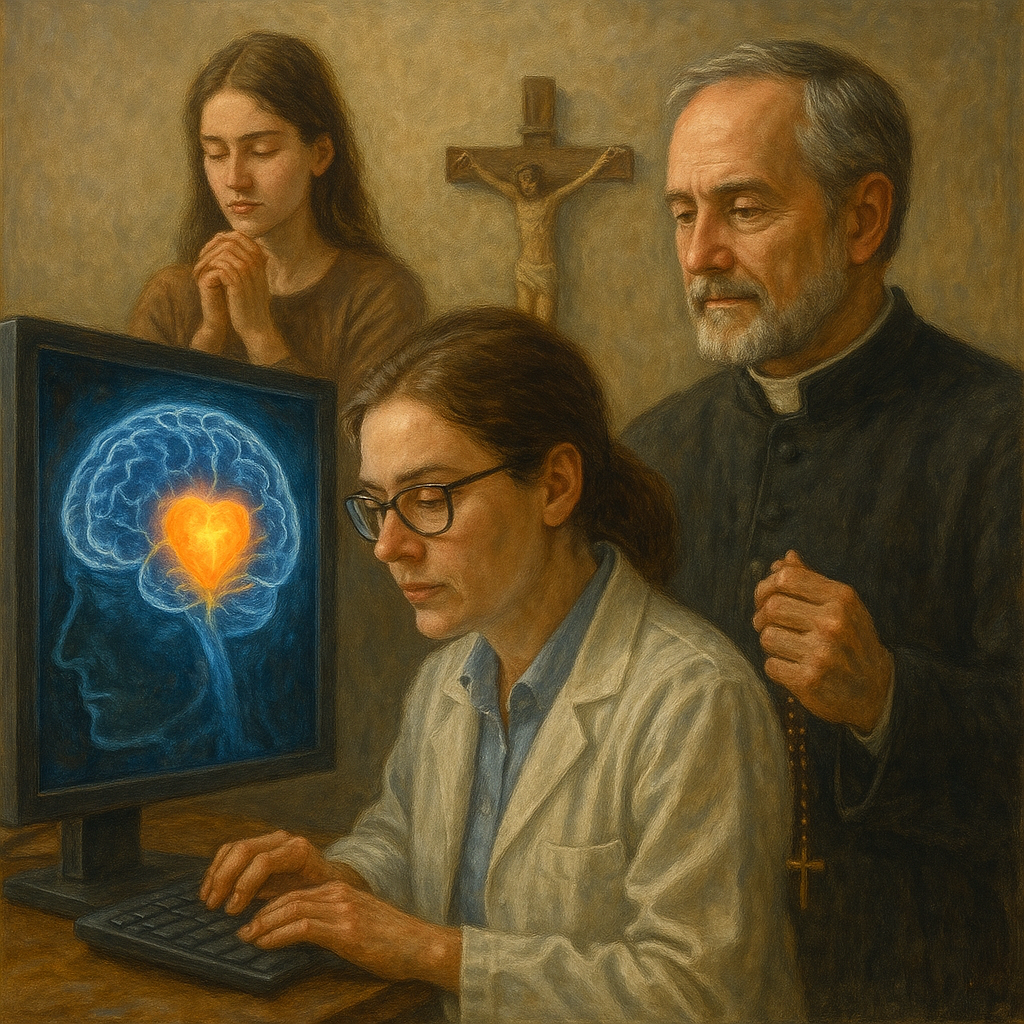Faith and Science: The Integration of Catholic Spirituality and Mental Health

For centuries, there has been a perceived tension between faith and science, particularly in the realm of mental health. Some view these domains as inherently contradictory—one dealing with the immaterial soul, the other with the physical brain. However, the Catholic intellectual tradition has long recognized that faith and reason are complementary paths to truth, not competing alternatives.
The Catholic View of the Human Person
Catholic anthropology understands the human person as a unity of body, mind, and spirit. We are not merely physical beings with spiritual experiences, nor spiritual beings having a physical experience—we are integrated wholes. This holistic understanding provides a foundation for integrating spiritual and scientific approaches to mental health.
St. Thomas Aquinas, building on Aristotle, recognized that the soul is the form of the body—meaning our spiritual and physical dimensions are intimately connected. What affects one dimension inevitably affects the others.
The Brain-Soul Connection
Modern neuroscience has revealed the intricate ways our brain chemistry and neural pathways influence our thoughts, emotions, and behaviors. Far from contradicting Catholic teaching, these discoveries illuminate the biological mechanisms through which our embodied souls operate in the world.
For example:
- Prayer and meditation have measurable effects on brain activity, reducing stress hormones and promoting neuroplasticity
- Sacramental participation activates regions of the brain associated with social connection and meaning-making
- Spiritual practices can complement neurobiological treatments for conditions like depression and anxiety
When Mental Health Challenges Arise
Mental health conditions like depression, anxiety, or PTSD affect us at multiple levels:
- Biological: Involving neurotransmitters, hormones, and brain structures
- Psychological: Affecting thoughts, emotions, and behaviors
- Social: Impacting relationships and community functioning
- Spiritual: Potentially influencing our relationship with God and sense of meaning
A truly Catholic approach recognizes that addressing only one dimension—whether exclusively spiritual or exclusively biological—often proves insufficient. Just as we wouldn't treat pneumonia with prayer alone while neglecting antibiotics, we shouldn't address depression solely through spiritual means while neglecting evidence-based psychological and medical interventions.
Integrating Faith and Mental Health Care
What might an integrated Catholic approach to mental health look like in practice?
- Acknowledging the legitimacy of both domains: Recognizing that both spiritual direction and psychological counseling have valid and complementary roles
- Appropriate referrals: Spiritual directors and priests referring to mental health professionals when appropriate, and therapists respecting the spiritual dimension of clients' lives
- Faith-integrated therapy: Therapeutic approaches that incorporate Catholic values and spirituality while maintaining professional standards
- Sacramental life: Recognizing the healing potential of the sacraments alongside other interventions
- Community support: Engaging the parish community as part of the support network for those with mental health challenges
Overcoming Stigma
Unfortunately, stigma around mental health issues persists in some Catholic circles. Some may view psychological struggles as purely spiritual problems or even as moral failings. This perspective not only contradicts current scientific understanding but also fails to reflect the Church's holistic anthropology.
Pope Francis has spoken repeatedly about the importance of proper mental health care, noting that seeking psychological help "is not incompatible with spiritual direction and the sacramental life." By embracing both faith and science, we honor the fullness of Catholic teaching on the human person.
Conclusion: Toward a Truly Catholic Integration
The integration of Catholic spirituality and mental health science isn't merely a concession to modern psychology—it's an expression of authentic Catholic anthropology that has always recognized the unity of the human person. By embracing both the wisdom of our faith tradition and the insights of mental health science, we can provide more comprehensive care that addresses the whole person: body, mind, and spirit.
As St. John Paul II wrote in Fides et Ratio, "Faith and reason are like two wings on which the human spirit rises to the contemplation of truth." When it comes to mental health, we need both wings to soar.
